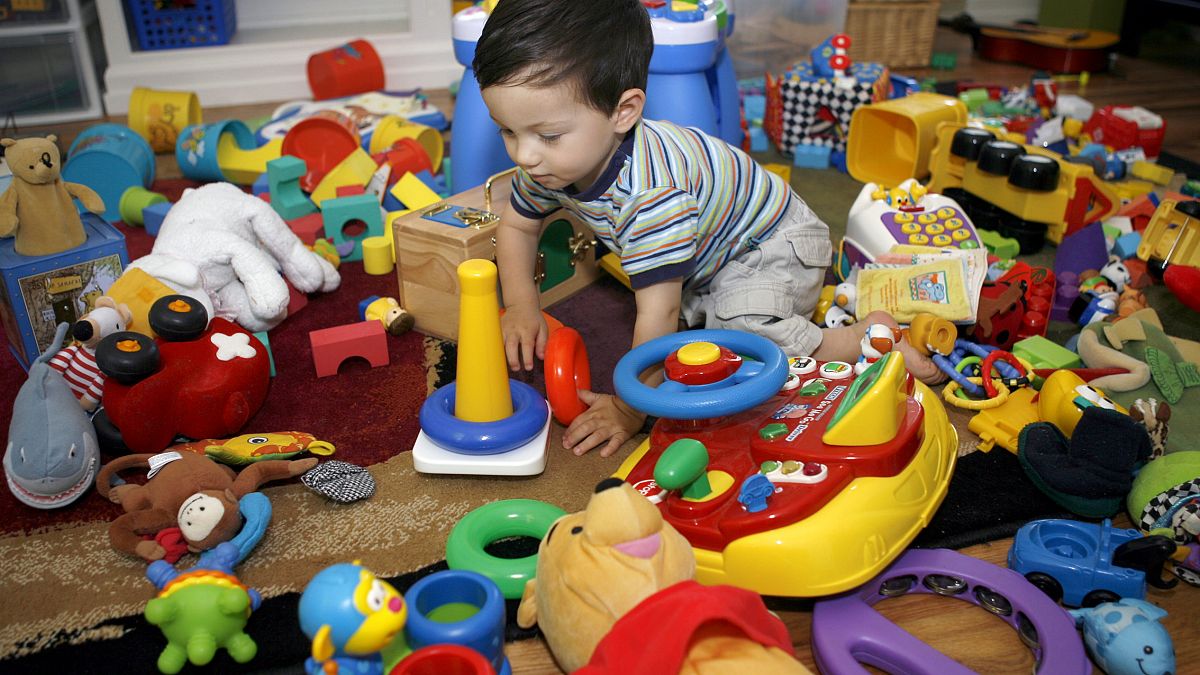New EU-wide rules protect children have been backed by the Parliament and must now go to inter-institutional negotiations.
The European Parliament today (5 September) backed a proposal aiming to improve the safety of toys available on the EU market – with a particular focus on substances harmful and toxic for children and the growing risks posed by digital products.
Marion Walsmann (Germany/EPP), steering the file through the Parliament, told Euronews that the current Toy Safety Directive from 2009 is outdated and needs revision, especially with the increasing importance of online marketplaces.
“But also, in view of the latest scientific findings regarding harmful chemicals, the corresponding limit values would have to be adapted or introduced in the first place,” she added.
With that aim, the European Commission tabled a proposal for a new Regulation in 2023. “This proposal will ensure that children are even more protected when playing with toys, including from harmful chemicals,” Commissioner Thierry Breton said at the time.
He added that enforcement will be stepped up thanks to digital technologies, allowing unsafe toys to be more easily detected, notably at EU borders.
The regulation would introduce essential requirements for toys to ensure a high level of protection of the health and safety of children. It adds a new ban on endocrine-disrupting chemicals (EDCs) and respiratory sensitisers to the existing prohibition on carcinogenic, mutagenic and toxic substances.
As the endocrine systems and the brains of children are still developing, they are highly sensitive to any substance that affects their development.
Respiratory sensitisers can lead to an increase in childhood asthma, and neurotoxic substances are particularly harmful to children's developing brains, which are more vulnerable to toxic injury than adult brains.
Endocrine disruptors are chemicals that alter normal hormonal activity in the body such as bisphenols and phthalates. Exposure to EDCs can be dangerous even at very low doses and have effects later in life.
Exposure to endocrine-disrupting chemicals has been widely studied in recent years, as analysis suggest that they may be responsible for declining sperm counts, increased numbers of male children born with genital malformations, and rising cases of certain types of cancer that are known to be hormone-sensitive.
The text proposed by the Parliament reinforces the obligation for manufacturers to include warnings on toys describing potential risks and clarifying target age-groups.
Under the Commission proposal now agreed by the Parliament, manufacturers should create a Digital Product Passport to provide information on the compliance of toys with this Regulation and with any other legislation applicable to toys.
Besides the digital passport, they should also carry out a safety assessment before placing a product in the market that should cover all the chemical, physical, mechanical, electrical, flammability, hygiene and radioactivity hazards as well as the potential exposure to them.
MEPs also agreed that this assessment should also consider the health risks posed by digitally connected toys, including those posed to mental health and the cognitive development of children.
"Now it is key to convince Member State to preserve the precautionary principle in the legislation, and ensure better provisions against the risks that connected toys may pose to the mental health of children," Florence Punzano, senior policy officer at the consumer organisation BEUC, told Euronews.
The next step will be for the new rules to undergo inter-institutional negotiations between Parliament, the Commission and the Council. “I am confident that as soon as the new Commission has been constituted, the negotiations can be finalised in a few weeks or months,” Walsmann added.















